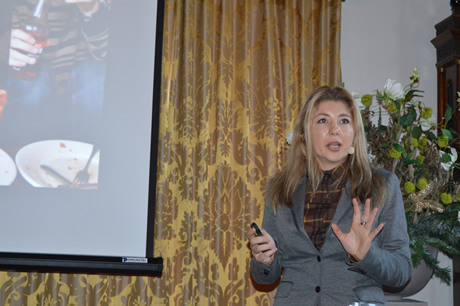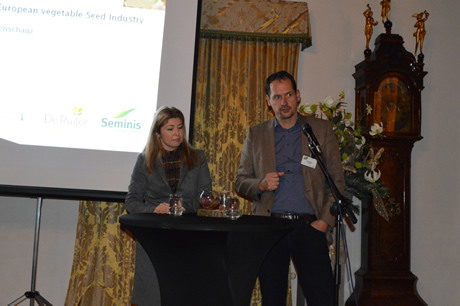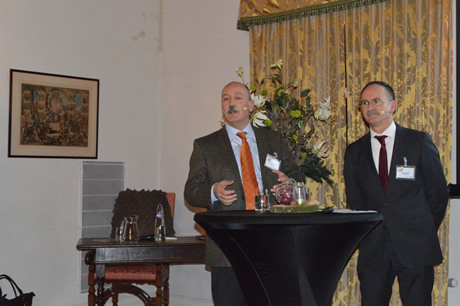
De Ruiter and Seminis organised another new edition of Breeding Proof on Monday. This time it even took place in Castle Rhoon, The Netherlands. The programme revolved around the theme 'Monsanto in the supply chain'. Day president Nico van Vliet started the event. Nico briefly recalled the successful launch of six new products this year. "The topics of this year's Breeding Proof are internationally interesting, especially for the United Kingdom and Germany."

The first presentation was provided by Elena Ozeritskaya. She is an expert in the area of target group determination and knowledge. She spoke of the importance and characteristics of Generation Y. Everyone born between 1981 - 1995 belongs to this generation. This group is the largest and therefore the most important target group. This group is characterised by being realistic and adventurous, find social media important, and YOLO (you only live once) is their creed.

Click here for the photo report
Elena continues her story with four consumer trends:
- Food = experience
Food is a taste experience. Consumers are looking for products that fit their identity. Shopping has to become fun again. This is the challenge for the retail. - Well being – rustic
Chic is the new nostalgia. Food has to be as fresh as possible. The reason people buy local vegetables, has chauvinistic roots. Organic vegetables are becoming a booming business. This is still in its infancy. - Convenience
Eating more often and smaller amounts. Cut vegetables remain popular. But something has changed; the vegetables are cut less finely, so that the origin is still recognisable. There is a market for meal boxes and snack vegetables. The use of technology whilst shopping will increase further. - Affordable luxuries - price-quality ratio
- Making it easier for the consumer. Adjust amounts, flavour and store supply.
- Combine different trends.
- Personalise the supply.
- Use social media to convey information.
- Be authentic. The consumer is too.
- Work together within the chain.
- Make sure your brand category is clear.
- Fair price - straight from the farmer to the consumer.
- From the Netherlands - products are from Dutch farmers.
- Organic - like nature intended.
- Transparent - always know where the products come from.

Ibrahim El Menschawi is the EMEA Regional Lead within Monsanto. He highlighted the role of Monsanto within the chain. Monstanto is conscious of the importance of information coming out of the chain. The closer to the customer the information comes, the more valuable. "Everything starts with the consumer. That's where the need is and therefore the origin of every new variety," says El Menschawi.
Breeding Proof was closed with a dinner which included the first harvest of Kwekerij 't Woudt.
